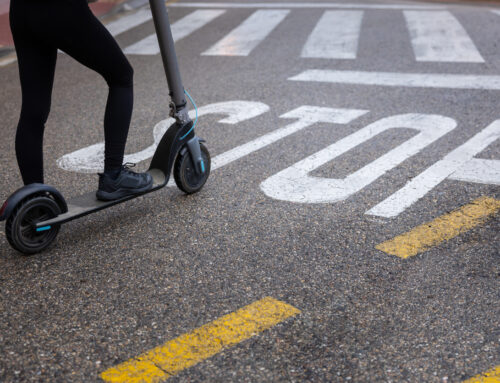Effects of Peer Pressure: How the Teen Brain Responds

“But everybody’s doing it!” As a parent, you’ve probably heard this excuse from your tween or teen, usually to justify something they know you won’t approve of. Maybe you’ve even responded, “If everybody was jumping off a cliff, would you jump off, too?”
While this response may cause teens to roll their eyes, parents use it to point out a deep truth — peer pressure is a powerful force. All of us, adults included, are influenced by it to some degree, but tweens and teens are particularly vulnerable to the effects of peer pressure because their brains aren’t fully developed yet.
The Teen Brain
The fact is that human brains aren’t fully developed until we’re around 25 years old. The tween and teen years are a vital time for brain development because the prefrontal cortex is in the process of maturing. On one hand, being in this maturing stage means that teenage brains are very adaptable. Teens can learn quickly and handle new challenges and experiences more easily than many adults.
On the other hand, the prefrontal cortex is the area responsible for helping us make good decisions. Because this area of their brain is still growing, teens may be more likely to try dangerous or illegal activities, especially when they’re exposed to negative peer pressure.
How the Teen Brain Responds to Peer Pressure
Generally, when we hear the term peer pressure, we think of its negative aspect. Of course, all peer pressure isn’t negative. When classmates encourage each other to study for a big test, practice for an upcoming athletic contest, or volunteer for community projects, they’re exerting positive peer pressure.
According to neuroscientists, teens have a “biological need for social connection.” Their developing brains give them a “heightened sensitivity to rewards” that can lead them to follow positive suggestions from peers but can also leave them vulnerable to negative peer pressure.
Fortunately, this same research shows that parents have a lot more influence over their teens’ decision-making processes than previously thought. Professor Jennifer Silk says, “I think a lot of parents believe that it’s too late and that, by adolescence, peers have all the power. But this research is showing that parents shouldn’t give up, that they still do have the power to help their adolescents learn how to process and regulate their emotions.” That means parents still have a major role to play in helping teens resist peer pressure to engage in risky behavior, like underage drinking.
How the Teen Brain Responds to Alcohol

If your teen is being pressured by friends or classmates to drink alcohol, you can give them some good reasons to resist by explaining the effects of alcohol on the teenage brain. Underage drinking can:
Five Ways Alcohol Impacts the Growing Brain
- Slow brain activity – Alcohol decreases brain activity, and the effect can last up to two weeks.
- Make learning difficult – If your teen is concerned about making good grades and getting into college, then they have an extra reason not to drink. Alcohol interferes with overall brain health and makes learning more difficult, particularly for adolescents.
- Impair proper development – Using alcohol before the brain is fully developed can keep the prefrontal cortex from developing as it should and seriously impair a teen’s ability to use good judgment in the future. Making the wrong decision about drinking can have significant consequences for teens, but those consequences only get more serious with age, making it even more important that adolescents not hinder their brain’s development.
- Cause memory damage – Underage drinking, especially binge drinking, can lead to blackouts and loss of memory. No one wants to look back on their youth and not be able to recall the fun times and good experiences they enjoyed.
- Lead to long-term problems – Underage drinking can “wire” the brain for alcohol use disorder (AUD). Teens who begin drinking before age 15 have a 40% chance of developing AUD, while someone who waits until they are 21 has only a 7% chance.
How Parents can Combat the Negative Effects of Peer Pressure
While you can’t always protect your teens from peer pressure, you can prepare them to resist it and choose healthy alternatives to alcohol. Help them learn to say “No” and walk away from potentially dangerous situations. Teach them that there are many alternatives to drinking.
Let them know you love and support them, and make sure they know they can come to you if they’re pressured to drink alcohol or engage in other risky behaviors. Start the Conversation with your child and begin combatting the negative effects of peer pressure today!



